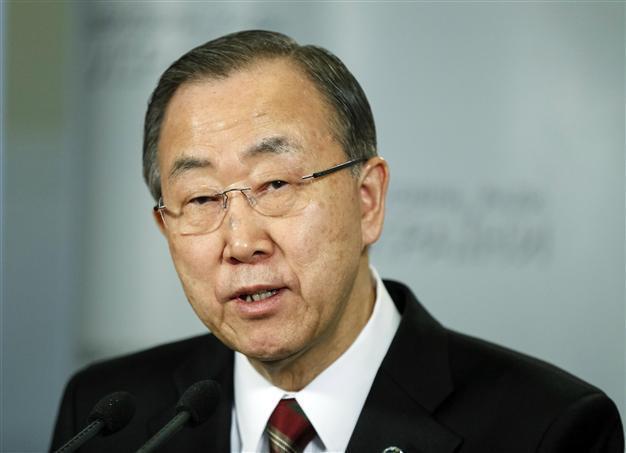UN says Syria aid access still 'extremely challenging'
UNITED NATIONS - Agence France-Presse

Ban called on the government and the opposition to take measures to ease the delivery of relief supplies, notably medicine, to 9.3 million Syrians in need. REUTERS Photo
UN chief Ban Ki-moon reported Monday that humanitarian access to Syrians remains "extremely challenging" a month after the world body demanded a lifting of sieges and bombardments of Syrian residential areas.Ban called on the government and the opposition to take measures to ease the delivery of relief supplies, notably medicine, to 9.3 million Syrians in need.
"One month after the passing of Security Council resolution 2139, humanitarian access in Syria remains extremely challenging for humanitarian organizations," Ban said.
"Delivering lifesaving items, in particular medicines, remains difficult. And the assistance reaching people continues to fall far short of what is required to cover even their basic needs," he said.
Ban was referring to a UN Security Council resolution passed unanimously February 22 that called for the lifting of sieges and an end to bombardments of residential areas with barrel bombs.
The resolution, which Russia supported after negotiations, provides no sanctions against those who fail to respect it.
While it leaves open the door to sanctions against violators, based on Ban's report, that would require another decision by the Security Council.
Diplomats expect that Russia would block any sanctions against the Syrian regime, as it has done three times since the start of the Syrian crisis in March 2011.
"I strongly condemn the continued heavy shelling, including the use of barrel bombs by the Syrian government forces in residential neighborhoods, as well as the terror acts in Syria by extremist groups who are attempting to impose radical ideologies in some parts of the country," Ban said.
He also said he was deeply concerned about the use of foreign fighters and the shipment of arms and fighters into the country from outside.
He appealed to states and other actors in the Syrian civil war to end their support for the violence, and to use their influence to promote a political solution the conflict, now in its fourth year.
















